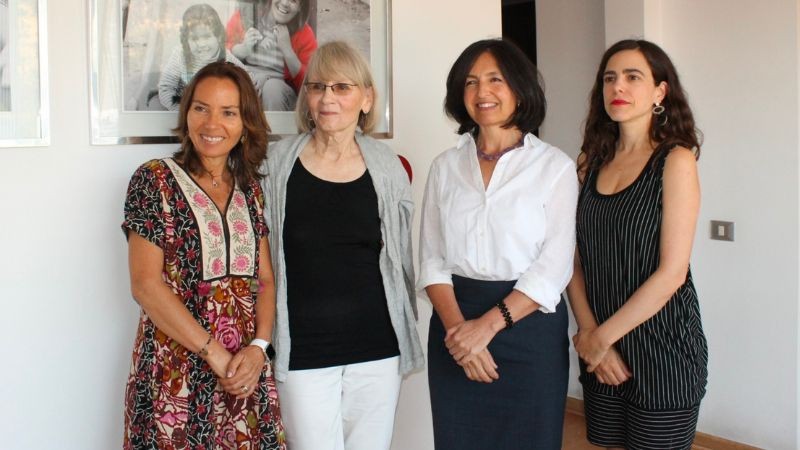In a continuously changing world, teaching in the traditional way has become a challenge. Academics, school teachers and students themselves need to identify and determine how best to nurture the intellectual abilities that will prepare young people for lifelong learning, work, and citizenship.
Students must develop argumentative reasoning skills, critical thinking, peer dialogue, collaborative learning, and team-work. That was the main message that Deanna Kuhn, a renowned professor of Psychology and Education at Columbia University’s Teachers College, shared during several meetings with local education experts in a recent trip to Chile.
Kuhn participated in a workshop entitled “Promoting Critical Thinking in the 21st Century” at Universidad Católica (UC), which was chaired by Verónica Cabezas (TC ’10), assistant professor at UC’s Education Department and member of the Columbia Global Centers | Santiago’s Advisory Board. The event was co-sponsored by the Center of Educational Justice, an academic think-tank that trains new researchers, supports the design and implementation of public policies, and promotes collaboration with international institutions.
Kuhn is a leading figure in the promotion of dialogue to develop students’ skills of argument - the foundation of critical thinking and writing. Her most recent book: “Building our Best Future: Thinking Critically about Ourselves and our World”(2017), is written directly to encourage adolescents to use peer dialog to develop verbal and written skills of argument and critical thinking. Simultaneously it engages them in evidence-based decision making regarding topics about their personal futures, that of their communities, their nation, and their world.
During a meeting at Fundación Oportunidad, a Chilean NGO that promotes education among vulnerable children, Kuhn shared her thoughts on what are the best means of promoting dialogue, which is the base of argumentative reasoning skills and critical thinking. She also discussed in length the role of technology in education.

